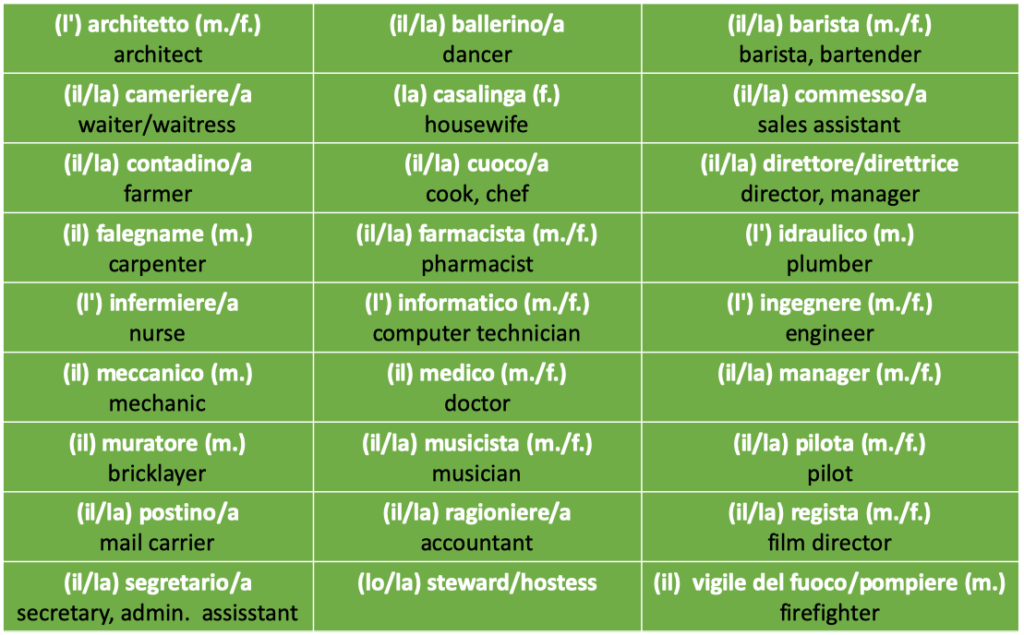The verb “fare”
| Listen to the question, the answers and find the corresponding characters in the pictures below.
Then click here for the answers. |
| Idiomatic expression with the verb fare The verb fare is one of the most commonly used verbs in Italian. Fare literally means to do or to make, but depending on the context it can also mean to have, to take, etc.. See below the most common idiomatic expressions formed with the veb fare that can not be translated literally. To practice vocabulary and pronunciation, use Quizlet.  Next to some of these idiomatic phrases, verbs with the same exact meaning can also be used: fare una domanda = domandare, fare una foto = fotografare, fare una passeggiata = passeggiare, fare un viaggio = viaggiare, fare un regalo = regalare. |
| Professioni. You have already learned some common jobs (il mestiere / il lavoro) and professions (la professione) in Italian (see in particulary Unità 2). Here you can learn a few more. To practice vocabulary and pronunciation, use Quizlet.
Note: a) As you can notice there are still typical male (falegname, idraulico, meccanico, muratore, vigile del fuoco/pompiere) and female (casalinga) professions, so they have only one gender. Other nouns work for both masculine and feminine and only the articles in front of them make the gender clear (il/la barista, il/la farmacista, il/la musicista, il/la pilota). Their plural in any case changes according to the rule (m. in -a > –i and f. -a > –e, see Unità 3): i baristi/ le bariste, etc. In other cases the job has only one form (originally masculine) that combines one article and a noun that work for both masculine and feminine in the singular (l’architetto, l’informatico, l’ingegnere, il medico) and the plural (gli architetti, gli informatici, gli ingegneri, i medici). Nouns of foreing origin maintain the same form (il/la manager, i/le manager). |
Tasks
|
Practice
Previous > Espressioni idiomatiche con “avere”
Next > Il Tempo

